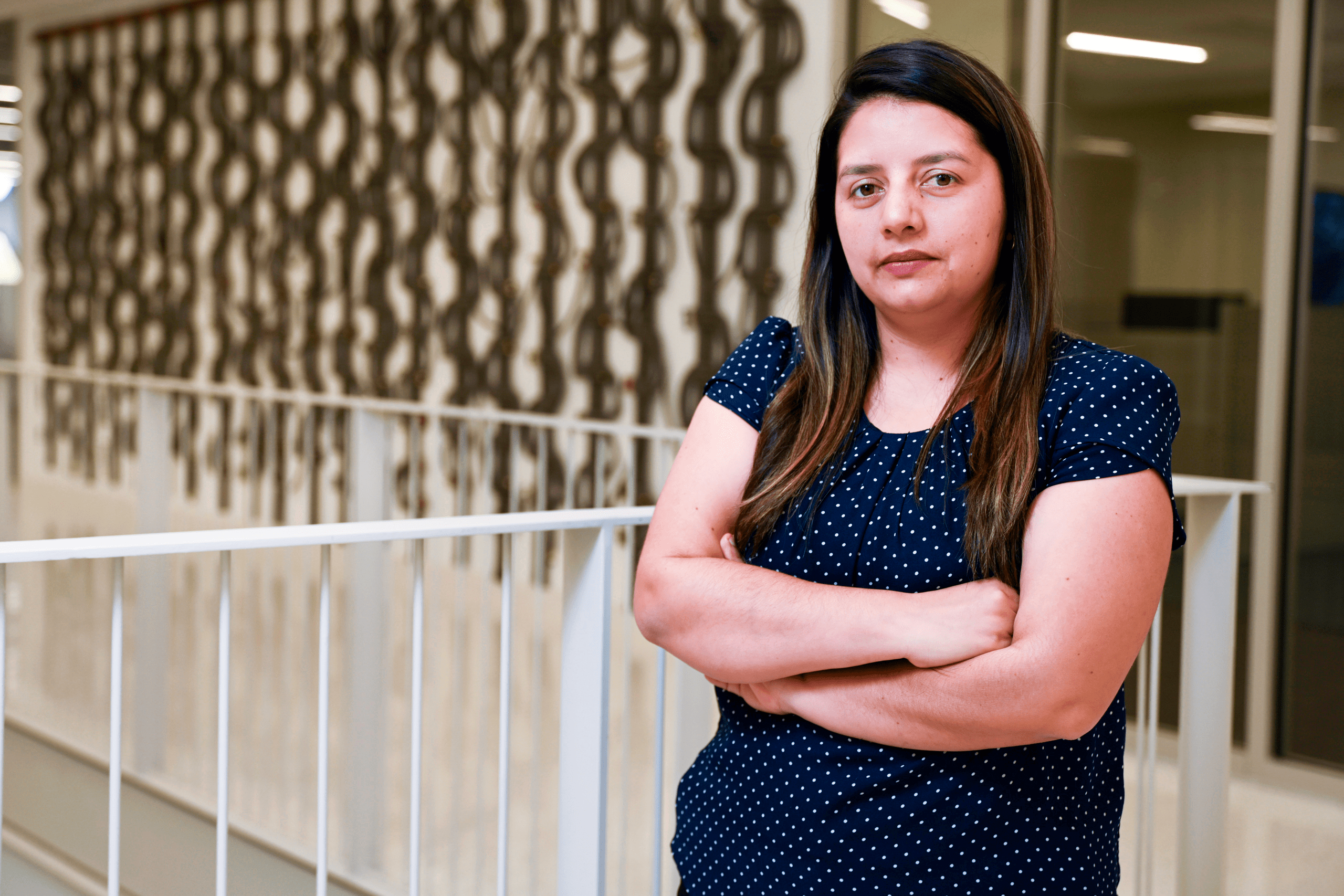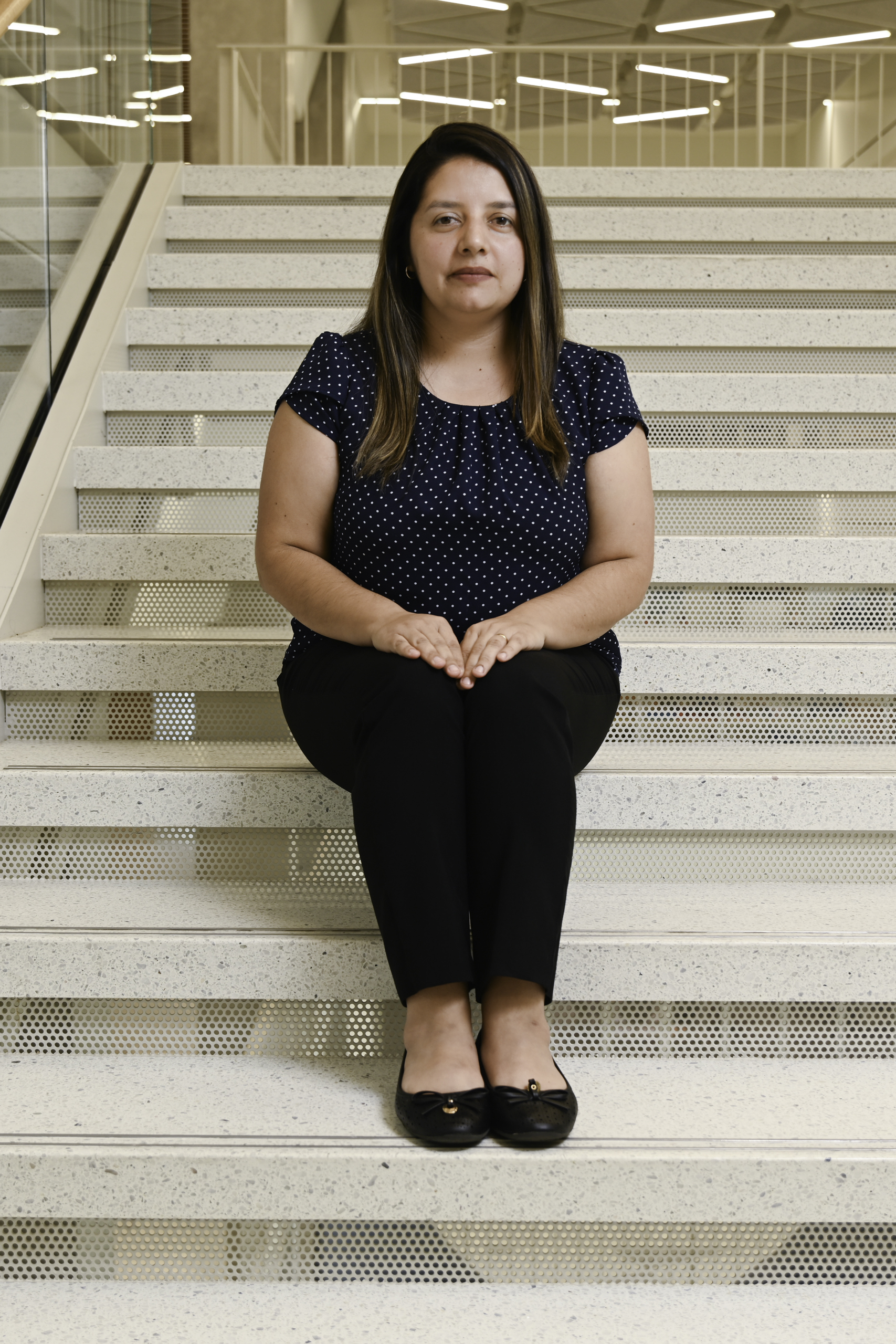Faculty member for the new ADS program rooted in AI education
April 16, 2025
EEd Faculty Profile: Meet Laura Cruz Castro

As a child, Laura Cruz Castro wanted to be a math teacher.
“I was drawn to roles that involved problem-solving and helping others, and teaching math seemed like the perfect way to combine those passions,” said Cruz Castro, Ph.D., an assistant professor with the Department of Engineering Education (EEd) in the Herbert Wertheim College of Engineering.
Cruz Castro also is among the first faculty members to teach in EEd’s new Applied Data Science (ADS) master’s program.
Designed to meet the growing demand for skilled AI professionals, ADS and Artificial Intelligence Systems (AIS) master’s programs were launched in fall 2024. Students use UF’s HiPerGator supercomputer and state-of-the-art research facilities to prepare them for careers such as healthcare, finance, robotics, and aerospace.
Cruz Castro is a rock star in EEd, her colleagues contend. And she has been busy with three active research projects, two awarded from the U.S. Department of Defense (DoD) and another funded by the University of Florida itself.
Interactive LLMs for Learning to Code from UF.
This $474,000 award is focused on developing and testing a research-based tool that uses large language models (LLMs) to help students learn how to code.
“We’re interested in how AI can support learning in a meaningful, effective way,” she said.
She is a co-primary investigator for this $5 million DoD award, which supports training in microelectronics security to strengthen the technical workforce in areas critical to national security and technological leadership.
She is a co-primary investigator for this $248,913 DoD project, which leverages virtual technologies to improve training in advanced packaging for defense applications.
“The goal is to make the training more scalable and aligned with the needs of the field,” Cruz Castro said.

Here is more about this researcher who is bringing her expertise to ADS.
Question: What is your research field?
Cruz Castro: Engineering education with a focus on how data and emerging technologies can be used to support learning across the entire lifespan. I’m especially interested in how tools like AI, virtual environments and learning analytics can help us design effective, inclusive and scalable educational experiences for engineers, whether they’re students, professionals or transitioning between roles.
Q: How will your research be used in practical application?
Cruz Castro: My research focuses on data-driven technologies in engineering education. We design learning tools and environments, implement them in real settings and study how students engage with them. By analyzing the data, we aim to improve how technical content is taught and learned — whether it’s through training programs, virtual simulations or interactive AI systems. The insights help us make learning more effective, more inclusive and better aligned with real-world needs.
Q: What have been the biggest moments in your research?
Cruz Castro: Student feedback. When a tool we developed helps a student finally grasp a difficult concept, it makes all the hard work worth it.
Receiving the UF Presidential Award was a pivotal moment, allowing me to delve into AI and education. This project has opened up opportunities to collaborate with NVIDIA and push the boundaries of what’s possible with HiPerGator. By working closely with the HiPerGator team, including Ying Zhang, Oleksandr Moskalenko and Matt Gitzendanner, we’ve been able to make new types of research and work with HiPerGator possible, which led to a pioneering research award I’m particularly proud of.
The Department of Defense awards have also provided exciting new opportunities for collaboration across departments, enabling us to apply our work in high-impact areas like workforce development and national security.
Q: How long have you been at UF?
Cruz Castro: Almost three years. I came here because of the strong existence of a very unique engineering education department that supports interdisciplinary work and the opportunity to contribute to teaching and research in engineering education.
Q: As a researcher and professor, how would you like to change the world?
Cruz Castro: I want to make technical education more effective, more accessible and more human-centered. I want to help create learning experiences that support students in building confidence and mastering complex skills.
Q: What made you want to be a scientist?
Cruz Castro: I’ve always been curious and interested in improving systems. Research gave me a way to ask meaningful questions, work on practical problems and contribute to something bigger than myself. It also gave me the freedom to explore new paths, take risks and push the boundaries of what’s possible in education and technology.
Q: How critical is federal funding to your work?
Cruz Castro: Federal funding is essential. It supports the development, testing and evaluation of educational tools and programs that wouldn’t be possible otherwise. It also enables us to work at a scale where the research can have real impact — in classrooms, training programs, and beyond.
Learn more about Cruz Castro at https://latte.eng.ufl.edu/.
